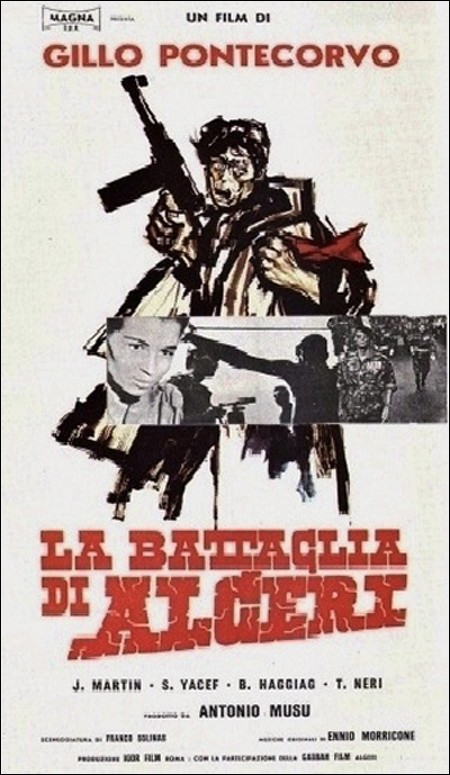There are war movies, lots of them, and then there is The Battle of Algiers. I feel like that should be enough. I have never been a huge fan of the genre; the good guy/bad guy dynamic is typically well defined, almost bordering on comic, regardless of how realistic the film hopes to be. So much time, for instance, is spent in Saving Private Ryan on helping us to develop relationships with the character that you could probably edit thirty, forty minutes of character building out if you trusted that the audience would assume that American soldier equals good and Nazi equals bad.
There is something polarizing about The Battle of Algiers. It is dry. Director Gillo Pontecorvo, and the financiers, wanted a film that retold the tale of the revolution in Algiers as neutrally as possible, and they did a pretty good job. It does lean a little on the heroic side of the Algerian National Liberation Front, but is far from the near-propaganda that most war movies dish out.
There are a few truly interesting choices that Pontecorvo made when creating the film. The first is the visual style. What you’ll see is a black-and-white historical fiction film that will leave you thinking that you’ve been watching a found footage documentary about the realities of war. There are several genuinely frightening moments interlaced to draw the audience in where other films may try to keep a clear delineation between viewer and actor. This gave the film a peculiar set of audiences. There are stories of the film being used by the U.S. government to give troops a fairly accurate idea of inner-city guerilla warfare. The other audience is quite the converse, as there are stories about guerilla forces using the film for training against highly organized military forces. This is something that very few films could ever dream of boasting.
The other choice that struck me is in casting. In true neo-realism style, Pontecorvo sought out unconventional and untrained actors for many lead roles of the members of the National Liberation Front, but he also hired traditional actors for the French forces. This gives the film an interesting dynamic to see the scattered common-man gathering against a well-rounded and well-trained army.
The Battle of Algiers is not an easy film to watch. You will not come out the same as you went in. I cannot even say you will come out for the better; this may be the mark of a good film. You will definitely learn something about yourself. This is an old story that is still repeated around the globe today: a strong force enters a weaker area to gain control, and bloody conflict ensues. Depending on your personal deep-seated feeling you will mentally ally with one side or the other and hopefully get a better idea of both sides of conflict. This does not happen in war movies – at least, this very, very rarely happens in war films – but it does happen here.
Trailer
Important Links
BFI Top 50: The Battle of Algiers
